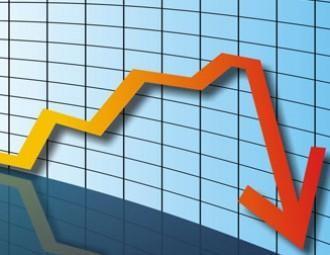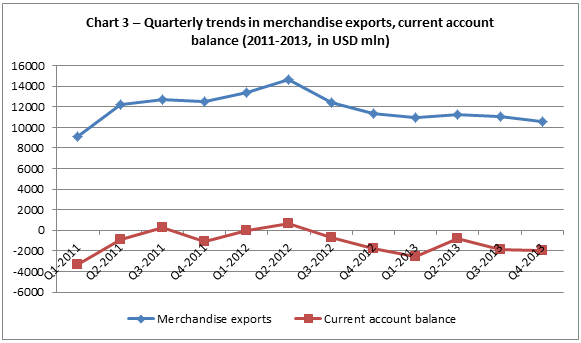Opinion: Only an ambitious reform programme may provide a basis for sustainable growth in Belarus

The attempts of Belarusan government to resolve the existing economic issues by temporary measures do not address the inherent drawbacks of the existing economic model, writes George Plaschinsky.
Aliaksandr Lukashenka returned from Moscow with victorious news ahead of V-Day. He convinced his Russian counterpart Vladimir Putin to issue a new $1.5-2b loan and to agree on a stage-by-stage reduction of oil export duties in the emerging Eurasian Economic Union. This may bring Belarus nearly $1.5b in 2015 alone.
These agreements, if implemented, will temporarily alleviate the country’s ongoing economic problems, but will not resolve them. Belarus is not generating the double-digit growth rates demonstrated before the 2011 currency crisis. Only an ambitious programme of reforms may provide a foundation for sustainable growth in Belarus, though such reforms contradict interests of the current leadership.
Soviet-style model: lack of efficiency
Aliaksandr Lukashenka long believed that the Soviet model was generally efficient, with some relatively small drawbacks. Therefore, when he came to power, he reversed market reforms in Belarus and introduced a Soviet-like model.
This economic model has been based on the state controlled property and enterprise, strong employment guarantees and an extremely high level of government intervention. Close ties with Russia have served as the main pillar of the model as Russia provided Belarus with subsidized energy resources and cheap loans.
As a result, Belarus has remained at a level of economic transition akin to Uzbekistan and Turkmenistan - the two other outliers among the 29 countries in the transition indicators report published annually by the EBRD. The state still owns more than 70% of all enterprises. Many of them are inefficient and lack the capital necessary for their operations and modernisation.
They rely on state support to survive and greatly increase its fiscal liabilities by up to 4-5% of GDP per year. A lot of state-owned factories do not also have an appropriate level of energy efficiency, thus putting their success at risk should there be a rise in Russian energy prices.
Long live socialism?
Additionally, wage-leveling leads to lost opportunities in the labour force as it sidelines human potential and ends up creating an environment of low morale and incentives for self-improvement and professional development. A low-educated loader in Minsk earns only $100-150 less than a chief economist in a major bank with 20 years of experience. As a result, the most productive specialists and promising young people migrate to Russia or Western Europe/the US.
Wage increases ahead of productivity result in inflation, and this, combined with low cost efficiency of companies, leads to very high prices even for basic products. Today prices for most household appliances, clothes and food are the same or even higher in Minsk than in London or New York, though average wages remain 7-10 times lower. Today one can buy a pizza or get a haircut on Fleet Street in London cheaper than in a distant district of Minsk.
Lukashenka’s approval rating, however, remains high. More than 45% of the population said they trusted the president, and 40.2% thought the country was developing in a right direction in March 2014, according to IISEPS. Moreover, 39.9% still consider socialism superior to capitalism (38.3%) and view it as the best model for Belarus.
This data accentuates the importance of academic exchange and education programmes for Belarusians such as Erasmus, OESS and ESSYB. More internship opportunities in Western countries, increased tourism, visa liberalisation and closer ties with the EU would also be helpful to increase pro-democratic moods in Belarus.
Worsening situation sobers market economy critics
Whatever people believe in, the Belarusian leadership cannot ignore the noticeable signs of economic stagnation. GDP growth reached only 0.9% in 2013. The government did not meet Lukashenka’s 8.5% growth target and is also likely to miss the 3.3% growth target this year.
Belarus is a small open economy that exports goods and services to the tune of 82% of its GDP (2012). Its economic and industrial output growth depends largely on the competitiveness of the country’s exports which have been falling since 2012. An associated current account deficit has reached an alarming level of nearly 10% of GDP in 2013, putting pressure on decreasing international reserves and exchange rates. The split within the Belaruskalij-Uralkalij cartel further reduced the country’s exports and potash revenues.
The Crimean crisis only aggravates the external position of Belarus, because both the Ukrainian and Russian economies are contracting, both of whom are at the top of the list of Belarus' main trading partners. Besides, Russian involvement in the Ukrainian conflict frightened the Belarusian leadership who saw how harsh Vladimir Putin can be when pursuing his interests. They understand better now that Russian support comes at the price of independence.

Although Lukashenka initially tried to sell his position in the Ukrainian crisis to the West, Western countries ignored him and his rhetoric has become more pro-Russian. After the inglorious collapse of theBelarusian engagement policy with the EU in 2008-2010, Western countries do not consider Lukashenka a credible partner. In this situation, a person who will be able to negotiate economic assistance with the West as effectively as Lukashenka does with Russia may become a strong challenger to the incumbent.
Ambitious reforms instead of cosmetic changes
The government attempts to resolve the existing economic issues by temporary measures such as raising utility costs or asking Russia for inexpensive loans. Such measures do not address the inherent drawbacks of the existing model, including its low level of self-initiative, incentives and FDI.
The most crucial issue, however, is the lack of commitment to carry out reforms. The upcoming presidential election in 2015 represents a major challenge to the strict macroeconomic policies that the government has long stated their commitment to.
If Belarus wants to avoid a recurrence of this boom-bust cycle, its leadership should develop and adopt an ambitious programme of large-scale market reforms to boost labour productivity, innovation and entrepreneurship.
The emphasis should be on the development of a knowledge-based economy and accumulation of human capital, taking into consideration financial constraints and a poor natural resources endowment. A successful Belarusian IT sector with steadily rising yearly exports (from $110m in 2009 to $331m in 2012) provides an example for other sectors of the economy, because it exploits competitive advantages and does not depend on Russia.
Irresolvable paradox for current leadership
Nevertheless, a completely new economic vision based on Western models challenges the very nature of the Belarusian model. Highly qualified and well-paid professionals have values and preferences significantly different from those of state-dependent factory workers.
The government will need to implement political reforms to hear the voice of these specialists and keep them in the country, but herein lies the problem of commitment. The current leadership is not willing to abandon its dominant position in government and business. The economic problems of Belarus are in fact highly political.
The EBRD clearly demonstrates with its recent statistics that Belarusian transition indicators stopped improving after the rise of Soviet-minded elite in the mid-1990s. Effective realisation of market reforms presupposes a cohort of new well-educated leaders who will be trusted by the EU and the US.
Originally published on BelarusDigest
-
03.01
-
07.10
-
22.09
-
17.08
-
12.08
-
30.09










































